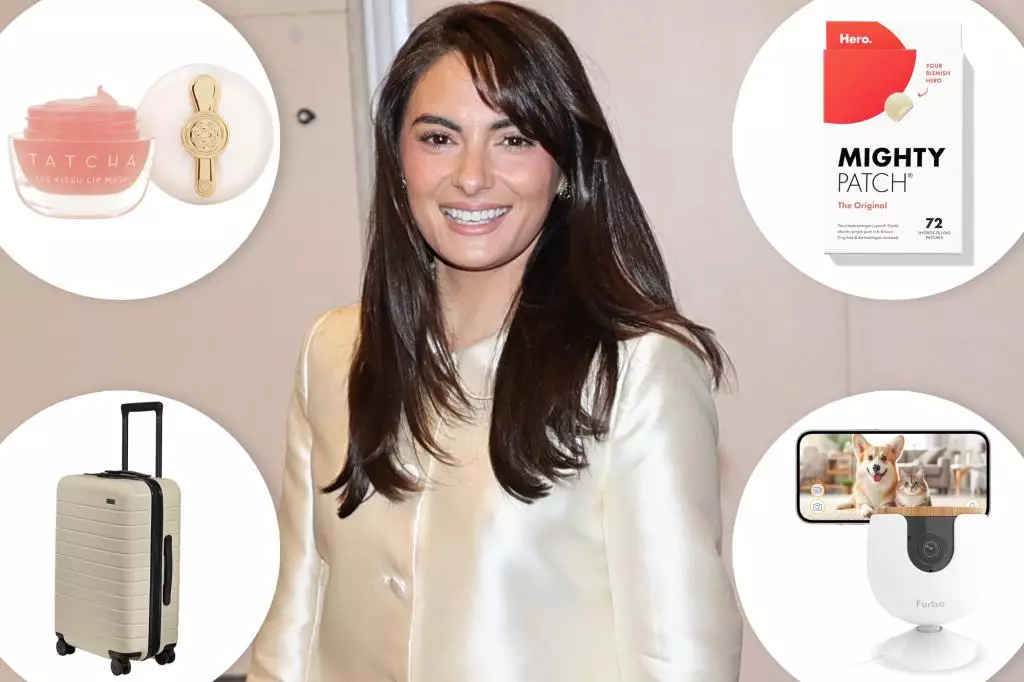In the age of digital capitalism, celebrity endorsements, especially from relatable figures like Paige DeSorbo, hold a unique influence over consumers. Their opinions can turn mundane shopping into a seemingly personal recommendation. When DeSorbo shares her Prime Day favorites, it’s not just about showcasing products; it’s about creating an aspirational lifestyle that fans want to emulate. The authenticity she exudes—particularly her candid admission of preparing her cart for weeks—breathes life into her endorsements, making her followers more likely to believe her recommendations. Today’s consumers are increasingly skeptical of traditional advertising. They crave genuine endorsements, which influencers like DeSorbo provide by blending personal branding with shopping advice. This trend emphasizes the importance of perceived authenticity over polished commercial scripts, shaping how audiences perceive product value during major sales events.
The Impact of Curated Selections on Consumer Behavior
DeSorbo’s personalized shopping list during Prime Day highlights a broader shift toward curated consumer experiences. Her picks—from skincare to luggage—serve as a blueprint for followers seeking trusted recommendations amidst countless options. Such curated content simplifies decision-making, transforming overwhelming sales into manageable, targeted choices. It also underscores how influencers act as taste-makers, elevating products from mere commodities to essentials endorsed by a trusted figure. This curation exerts a psychological influence, creating a sense of insider knowledge and exclusivity. Followers aren’t just buying the product—they’re buying into DeSorbo’s lifestyle, which adds emotional value to their purchase. In a competitive marketplace, this personalized approach often carries more weight than traditional advertising, influencing buying patterns more profoundly.
The Strategic Role of Celebrity Endorsements in E-commerce Success
Brands like Away thrive by leveraging celebrity associations to boost credibility and desirability. DeSorbo’s glowing praise for their suitcases—claiming they’re the only suitcases she trusts—serves as a powerful endorsement that can significantly sway consumer perception. Such endorsements can elevate less-known brands or reaffirm the quality of established ones, effectively becoming a strategic marketing tool during high-stakes sales events like Prime Day. However, this influence isn’t without risks; if the celebrity’s experience is authentic and relatable, it can build genuine brand loyalty. Conversely, perceived insincerity can backfire, undermining trust. As consumers increasingly value transparency, the most successful endorsements will be those rooted in real experience and authenticity, rather than scripted sales pitches. Brands and influencers must be strategic, but also genuine, to truly capitalize on this synergy.
The Enduring Relationship Between Celebrity Culture and Consumer Trust
Ultimately, celebrity figures like Paige DeSorbo are more than just promotional tools—they are cultural icons that shape consumer identities. When they endorse products, it’s not solely about the item itself but about the lifestyle and values they represent. Their trustworthiness can significantly influence market trends, especially during time-limited sales like Prime Day. While some critics argue that these endorsements are purely transactional, I believe that the best influencers cultivate a sense of community and authenticity that transcends mere marketing. Consumers crave connection and validation, often seeking brands that reflect their aspirations or identity. A well-chosen endorsement can cement a product’s desirability while also enhancing the celebrity’s relatable image, creating a mutually beneficial cycle of trust and influence in the modern e-commerce environment.

